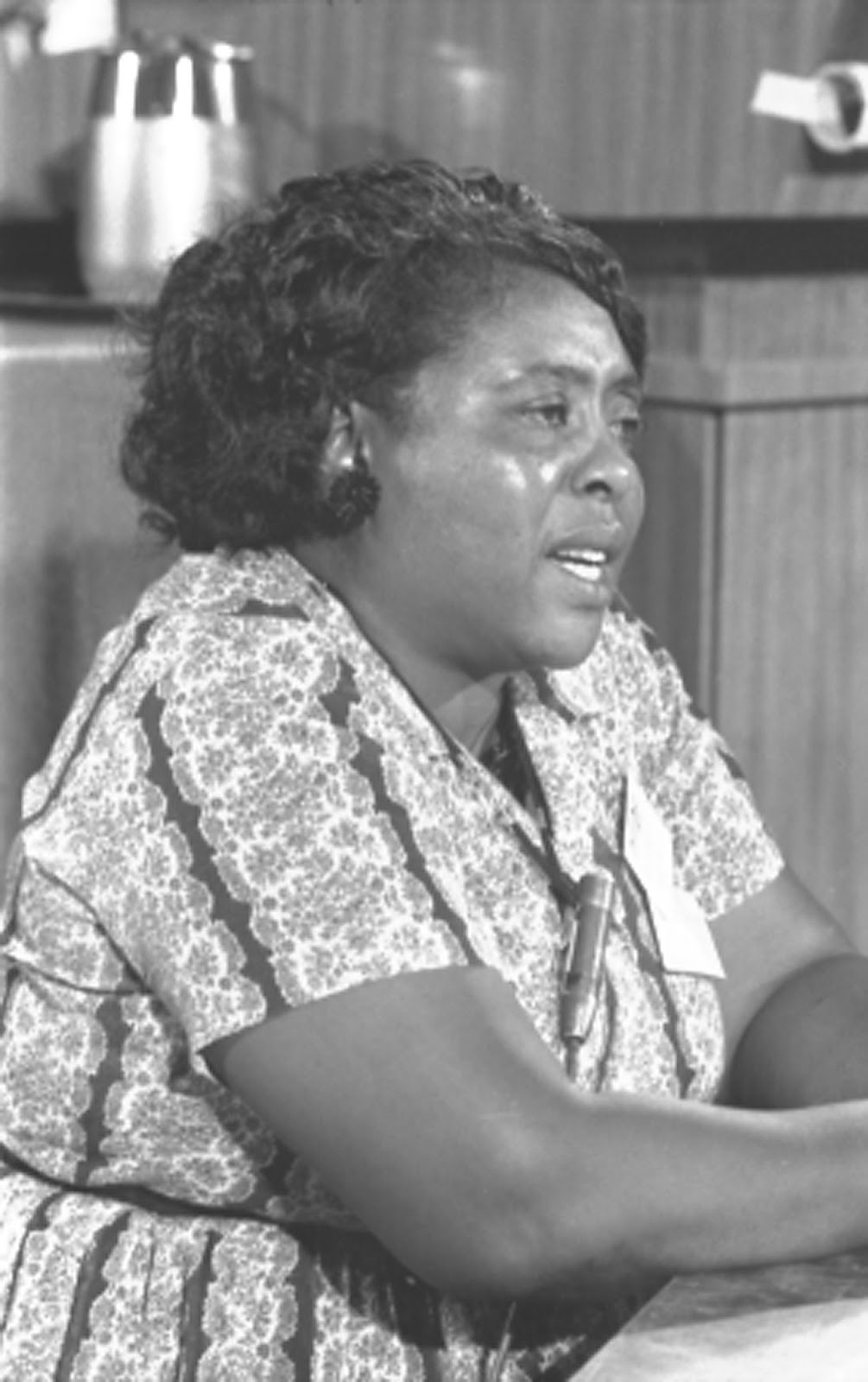The South, still ruled by 'the handful'

By Joe Atkins, Labor South
Fannie Lou Hamer, a folk philosopher of the civil rights movement in the Mississippi Delta, knew what she was up against in a state and region where an entrenched hard-right oligarchy ruled at the expense of the majority.
"With the people, for the people, by the people -- I crack up when I hear it," said the former field hand, a woman wise far beyond her sixth grade education. "I say, with the handful, for the handful, by the handful, 'cause that's what really happens."
Hamer spoke those words decades ago, but they're just as true today as hard-right political leaders in Mississippi and across the South once again circle the wagons to make sure they stay in power even if it means suffering across the land.
Witness the spectacle of Mississippi Gov. Phil Bryant and the Republican bosses in the state legislature opposing an expansion of Medicaid that would help 300,000 needy Mississippians even though the federal government will largely fund it. They're not going to threaten their party or their own political necks by giving Obamacare a chance succeed.
Even the pleas of some 200 doctors and other health advocates who recently gathered in Jackson, Miss., fell on deaf ears as Bryant and Co. stood in the door to block any expansion, much like segregationist Mississippi Gov. Ross Barnett tried to block integration at Ole Miss back in 1962.
The comparison is fitting.
In Mississippi you have the poorest state in the nation, where one in five nonelderly residents lacks health insurance, a state that recorded the nation's largest growth in the gap between the rich and poor between the late 1990s and mid-2000s. This is a state that in the last two decades enjoyed a net gain (over what it paid in taxes) of $240 billion in federal aid to the poor and needy.
It's the same story across the South, a region that will forever be the nation's poorest so long as it continues to be ruled by oligarchies of self-interested pols and the business and corporate interests they serve. That has been the South through much of its sad history.
From Virginia to Texas, what Robert E. Lee and Stonewall Jackson called the Confederacy, Republican governors have led the charge to oppose the Affordable Health Care Act and the Medicaid expansion that is a key part of it. Florida's governor is the only exception. "Many of the citizens who would benefit the most from this live in the reddest of states with the most intense opposition," Kaiser Family Foundation President Drew Altman told the Associated Press.
The assault on the needy takes many forms. The Republican governor and legislature in North Carolina recently agreed to slash weekly benefits to the unemployed from $535 to $350. North Carolina has a 9.2 percent unemployment rate, fifth highest in the nation. It joins five other Southern and border states -- Arkansas, Florida, Georgia, Missouri, and South Carolina -- that have slashed benefits to the unemployed.
Back in Fannie Lou Hamer's day, white Delta planters and their pet pols fought racial integration with every fiber of their being. Their minions killed and maimed activists. They burned churches and homes. They threw blacks like Hamer into jails and tried to beat them into submission.
The same federal government that finally forced Mississippi and the Delta planters to accept the black vote and black civil rights also allowed that same leadership to control federal aid to the poor. Planters grew rich on federal farm subsidies but were misers when it came to doling out food stamps or other poverty assistance. They had no compunction about withholding assistance to any black upstart who challenged the system.
Read historian James C. Cobb's The Most Southern Place on Earth about those times. It's painful but an education. Mississippi was "a kind of prison in which live a great group of uneducated, semi-starving people from whom all but token public support has been withdrawn," said one observer, a physician from North Carolina who refused to believe how bad things were until he saw them in person.
The same hypocrisy exists today. State leaders in Mississippi managed to find $356 million in incentives to lure Toyota at a time when they wouldn't even fund a burn center, forcing burn victims to leave the state for treatment.
"Nothing could be a greater threat to the Southern cheap-labor economic strategy than universal, standardized federal social insurance," author Michael Lind of the New America Foundation has written. "In order to maximize the dependence of Southern workers on Southern employers in the great low-wage labor pool of the former Confederacy, it would be better to have no welfare at all, only local charity (funded and controlled, naturally, by the local wealthy families)."
In other words, government "with the handful, for the handful, by the handful."
Tags
Joe Atkins
Joe Atkins is a professor of journalism at the University of Mississippi and author of "Covering for the Bosses: Labor and the Southern Press." A veteran journalist, Atkins previously worked as the congressional correspondent with Gannett New Service's Washington bureau and with newspapers in North Carolina and Mississippi.
